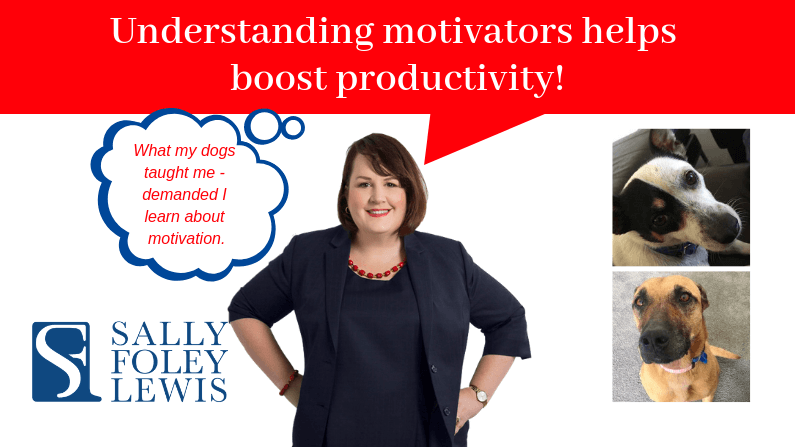… or … What my dogs taught me – demanded I learn about motivation.
Meet Rambo. This is Rambo at 5:32pm every afternoon…

Meet Missie. This is Missie at 5:32pm every afternoon…

Rambo and Missie are our fur babies (yes – I had to publicly apologise on Facebook as I became one of ‘those’ people)!
What I love about these two now is that I better understand their motivators: their drivers. I say now because these two are rescued dogs so they came into our home with a degree of unknown history, and it’s taken a little while to work out what will work best for each of them. Sound familiar for new hires into your workplace? Or when you shift from an operational role into your first managerial/leadership role?
As you can probably tell from the photos, at 5:32pm every afternoon Rambo will start the process of letting us know he’s hungry, and he wants his dinner, encouraging and asking if it’s dinner time (it’s actually not), and if you’re not sitting he’s walking behind you and poking his cold, wet nose into your calves. It was cute the first hundred times. While Missie is, well, the exact opposite. Rambo is food driven 99.9% of the time, while Missie is affection driven 99.9% of the time. Rambo shows you, Missie seems happy to wait until she here’s the food containers being opened.
Missie and Rambo constantly give me Productive Leadership reminders, in this instance it’s motivation, especially when it comes to your colleagues, employees or direct reports (people productivity):
- We are not all motivated by exactly the same things.
- We may have similar motivators but the degree, timing and intensity/level of need will not all be the same for all us. Therefore identifying a motivator for a direct report today might not be the same motivator or the same intensity of a motivator, in the same context, in six months time.
- Two people may be motivated by the same things yet the way they choose to show it could vary considerably.
- Motivating your team will not work with a one-size fits all approach. While some general concepts will apply to the whole team, the gold however is in learning more about each person, engaging with them regularly to learn their motivators and then using that information to help them be even more productive.
- You’re not a mind reader, so it can take time to work out the motivators: speed up that process by asking. Even the simple act of asking could increase engagement and you might be pleasantly surprised with just how motivated your people are!
Who do you need to learn more about?




